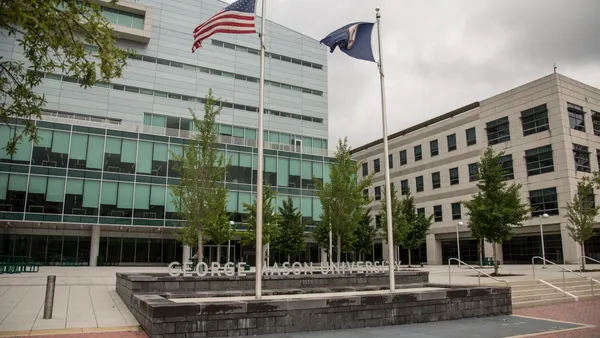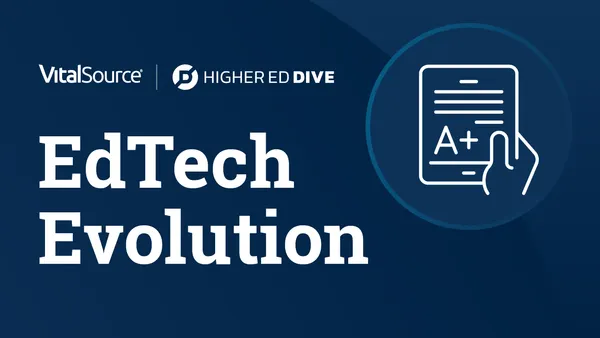Dive Brief:
- Universities underuse the data that is available to them, often because of poor communication among departments, according to new research published in the peer-reviewed journal Science.
- Research institutions have access to both academic administrative and research data sets but often lack a centralized repository for all that information, the research found.
- Investing in the systems and people required to derive the most value possible from data can support transparent governance, promote equal opportunity among employees and students, and save universities money in the long run, it said.
Dive Insight:
The best practices and legal requirements around data management can change quickly. Staying up to date requires university leaders to make quick, informed decisions to keep their institutions competitive.
But large research universities are often run through a decentralized system that grants autonomy to schools and deans to operate as they deem fit, the research found. This can make creating a campuswide system for data collection and dispersal incredibly difficult.
Researchers from the University of California, Los Angeles and the MIT Press interviewed 12 senior leaders at major North American research universities. Interviewees, whose roles included provosts, vice presidents and chief information officers, indicated that improving their institutions' information infrastructure could allow them to incorporate data in their decision-making processes and decrease redundancy among people and departments. It could also better protect their institutions' privacy and cybersecurity interests, they said.
People holding different titles also expressed job-specific reasons for wanting better data management.
Provosts said that with more data about things like faculty members' research focus areas, funding patterns and higher ed policy trends, they could make more strategic hiring decisions.
Vice presidents of research wanted more tools to match faculty with funding opportunities. They also wanted better information about current and future research areas so they could better grow their universities' funding and scholarship portfolios.
The paper published in Science supported the value of chief data officers — senior leaders whose main function is to get their institutions as much benefit as possible from their available data. But only a few interview subjects explicitly expressed a need for such a position, the report said.
Interviewees sometimes likened centralizing data power, let alone creating a new C-suite position for data governance, to "a fool’s errand."
Everyone the researchers interviewed reported disagreements among stakeholders about who can use data and how. Those disagreements were often cited as the cause for slow or nonexistent policy updates.
Researchers found that universities often left data privacy matters in the hands of just a few people on campus, instead of handling them through a diffused governance. Those left in charge, like the offices of legal affairs and the CIO, also had broader responsibilities, meaning other priorities often came first.
The lack of modernization in data processing also stemmed from outdated ways of thinking, respondents said.
“I don’t think we made very good use of our data, in part because the people we had in our office were not used to using data to make decisions,” one senior leader told researchers.














